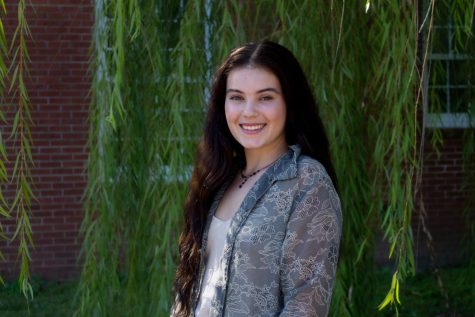The Buzz Behind the Windows of Sanford Hall
March 31, 2023
Internet music streaming killed the radio star (or whatever the Buggles were singing about back in the 1970s). Despite this popular notion about the antiquity of the radio industry, Georgia Southern’s broadcast, 91.9 WVGS The Buzz, can still be heard playing through the stereo just outside the station’s doors in Sanford Hall. 50 years of broadcast history tell the story of a student body that refuses to quit.
The Ebb and Flow of Georgia Southern’s Radio Waves
Before the communication arts department consolidated in Sanford Hall, most student media outlets were spread across campus buildings. Originally, WVGS was located in the Williams Center, as the defining node of materialization for the station was the use of the iron piping within the building as an antenna for transmission.
Since its creation in 1973, the station’s history has been stamped with periods of neglect, at one time even losing its FCC licensing. Most recently, the trials of the pandemic threatened the continuation of the broadcast. Through the strife, however, the station has persevered.
Janelle Menard, the station manager and program director, recalled how when she began working at the station in fall 2021, there were merely two staff members and three weekly show hosts. She describes the satisfaction of rekindling the station’s relationship with the student body.
“I always love when people don’t know about us and I get to tell them,” says Menard.
In the past three semesters, she has helped reach out to the campus community to recruit show hosts and has played a big role in the assemblage of a new team of station personnel. With four current staff members and around 30 shows in a regular week, the sometimes overlooked, window-walled room is currently seeing brighter, louder days.
Changes in the air…
In the coming semesters, the station will once again see big transformations. Menard is graduating this semester, leaving her position vacant.. Among her many duties, Menard has been responsible for bridging communication between the faculty advisor and other students, and keeping logs of the show schedules.
“They better be good with spreadsheets,” says Menard regarding her successor.
Likewise, the faculty advisor, Melanie Stone, is retiring after the summer semester. This baton of responsibility will soon be in the hands of Tyson Davis of the communication arts department.
Davis describes his excitement and nerves about stepping into this role while recognizing the importance of WVGS as a novelty and a valuable holding.
“Radio waves are essentially considered a natural resource because they are finite. There are only so many of them,” says Davis says.
Unlike satellite or cable transmissions, radio broadcasts operate within a restricted range of frequencies that cannot be expanded, only repurposed. In other words, radio broadcast frequency is a precious asset.
“We’re talking about something that, if we lose it, we’ll never get it back,” says Davis.
The Voice of Georgia Southern
The uniting characteristics amongst those who work for WVGS are the appreciation of music and content creation and the passion for sharing these things with the community. In recent interviews with the staff of WVGS, the sentiment that shone through above concern about duties or salaries was a genuine appreciation for the job and the atmosphere of the station.
“I’m just putting in music, and doing my thing,” says Kaylee MooYoung, the music manager of the station.
Her responsibilities include loading music into the library for the show hosts and scheduling music to play for the remaining hours of the broadcast. MooYoung says she enjoys the relaxed environment and that her work feels more like a hobby than an actual job.
Jackson Wright, the sports director, spoke about having the opportunity to work at the station, hosting both a music variety show and a sports news program.
“Sports broadcasting is something I would love to get into at some point, and being able to call the games is providing a lot of experience for that,” says Wright.
Menard’s show this semester is called “One Last Ride,” a music/talk show that is a nod to her approaching departure.
“Knowing that this is my last semester and my last show, I wanted to really just make it me, and so that’s what I try to do,” she says.
Through every phase of evolution that WVGS has undergone, one constant ingrained in the foundation of “The Progressive Alternative” station is its purpose as the voice of Georgia Southern. As a student-run and faculty-advised program, it simply would not exist without the Georgia Southern community.
Menard wants students to be aware of this unique outlet of expression and encourages them to get involved by telling WVGS what music and current topics they want to hear about.
“I want people to know that we’re here, and we want them to be here with us,” says Menard.









